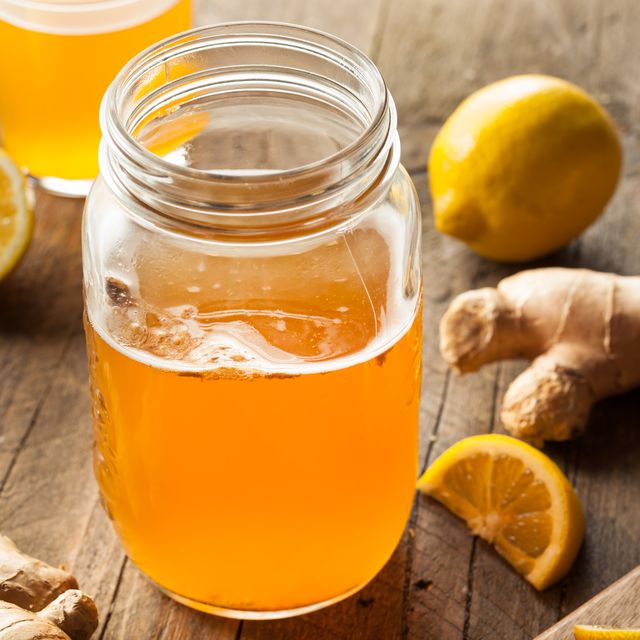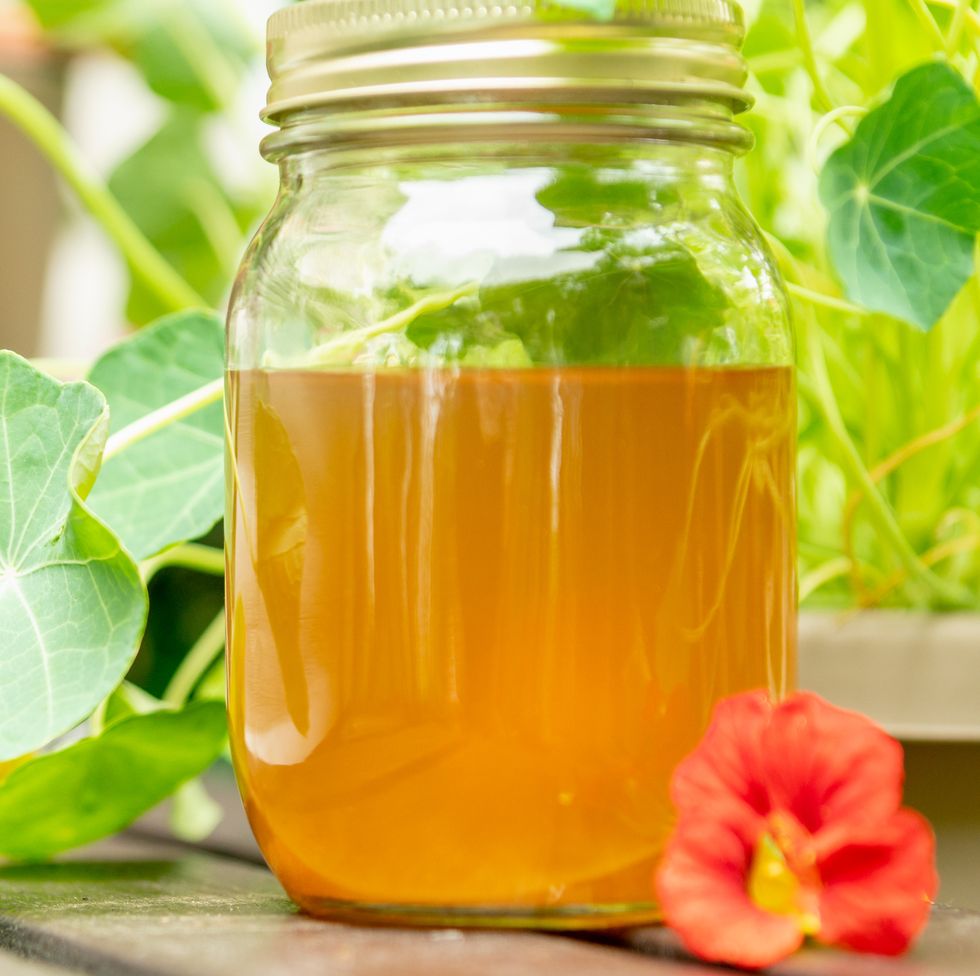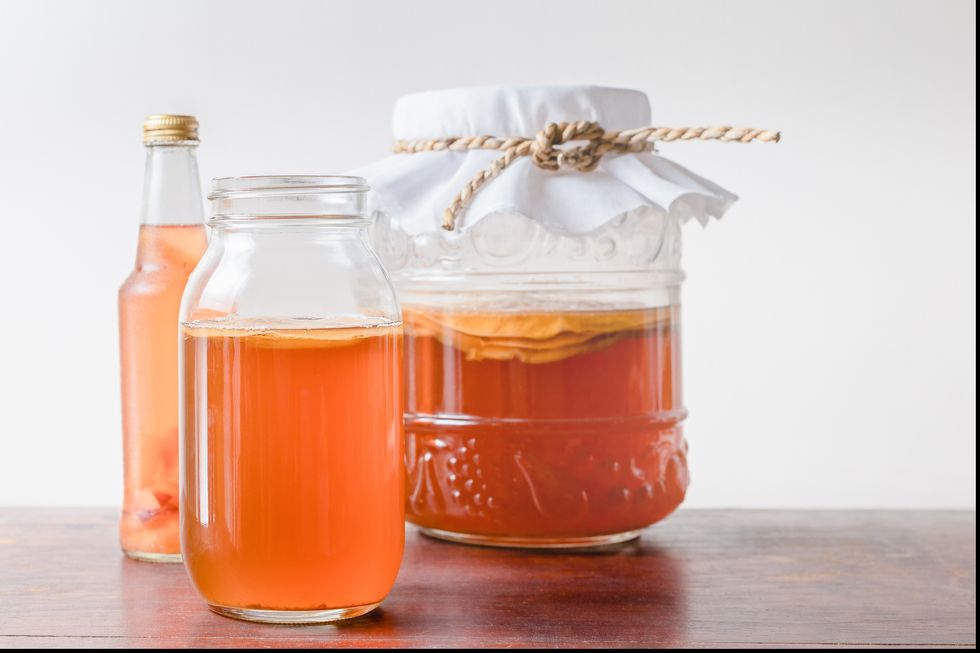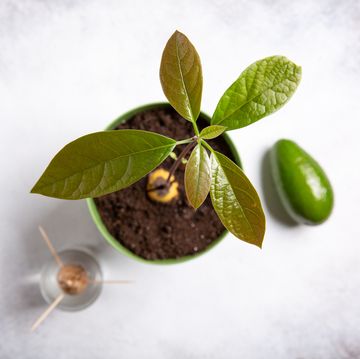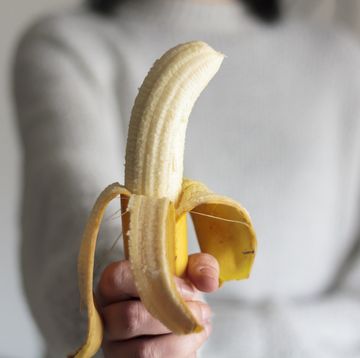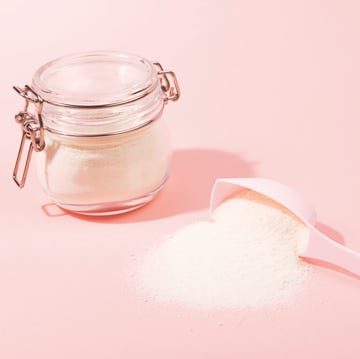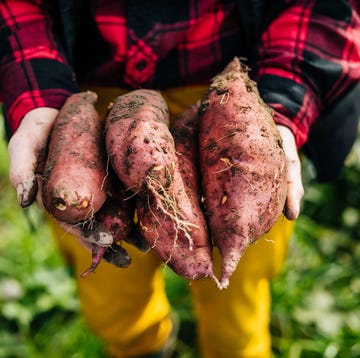Do a quick search of kombucha online and you’ll find that the fizzy drink (produced by fermented tea, sugar, fungi, and bacteria) supposedly supplies sky-high energy, quells pain, fends off certain cancers, detoxes your body, helps you shed weight, and turns your immune system into a fortress. Guzzlers of the health beverage preach these promises, too.
But is our beloved kombucha really a health elixir in a bottle?
"I would be wary of calling kombucha a remedy or a magic food," says Maggie Neola, R.D., a dietitian at the Physicians Committee for Responsible Medicine. After all, glorifying one food over another (kale is king!) isn’t the way nutrition works. A healthy diet is all about variety.
Here are the four potential health benefits to keep in mind before you take a swig.
The probiotics in kombucha can help your gut.
"Because it’s fermented, you see more of that probiotic push in kombucha," Neola says. And that’s where most of the drink’s health benefits lie: probiotics, a.k.a. good gut bacteria.
"The gut microbiome is often called the forgotten organ — it’s really important to foster that health," Neola says. After all, a healthy gut microbiome can help fend off issues like diarrhea and IBS and help your whole body function at its best.
Fermented foods may also improve the health of your intestinal cells, boost your immune function, and cut your risk of allergy and chronic disease, says Neola. These benefits aren’t unique to kombucha itself, but rather probiotic-rich or fermented foods like sauerkraut, kimchi, kefir, and yogurt.
The antioxidants in kombucha can help you stay healthy.
Past packing a probiotic punch, just how much (and how) kombucha can keep you well is a bit murky. As with other teas, you can sip a slew of antioxidants and polyphenols.
These compounds support healthy cell function and help you stay healthy overall, but commercial brews may not supply as much, says Jaclyn London, M.S., R.D., author of Dressing on the Side (and Other Diet Myths Debunked). Check labels to make sure you're choosing kombucha versus a kombucha-like product and look for actual tea in the ingredients list. Or you can simply drink green tea for tea-related health benefits.
Kombucha can help you cut back on sugary drinks.
Beverages are the number one source of added sugar in the American diet. Replacing sports drinks, juice, and sweetened tea and coffee with kombucha could help you dial back. One 16-ounce bottle of GT's Kombucha Gingerade contains 4 grams of sugar compared to 28 grams you'd find in the same-sized Starbucks Iced Matcha Green Tea Latte, for example.
"Since it's lower in sugar compared to other options, it's often a better choice and a step to cutting back on sugar from drinks overall," London says.
Kombucha can help you stay hydrated.
Generally, you should sip a minimum of 8 cups of water and other unsweetened beverages (like seltzer or black tea) a day. Drinking kombucha can also help you meet your hydration needs, London says.
Below, we're answering some common questions around kombucha.
How much kombucha can you drink in a day?
Not much research has been done on the subject, but consuming about 4 ounces daily may not cause any adverse effects in healthy people, according to the Centers for Disease Control. (Note: The research was done in the mid '90s).
"However, the potential health risks are unknown for those with preexisting health problems or those who drink excessive quantities of the tea," the CDC stated.
Pregnant woman and kids should steer clear of the beverage altogether, Gans says. Thanks to the fermentation process, kombucha can contain trace amounts of alcohol, usually ranging from 0.5% to 3% alcohol by volume. (A light beer has about 5% ABV.)
What are the negative effects of kombucha?
Kombucha’s probiotics can come with a downside. That’s because some brands of the drink are unpasteurized — and thus, you may end up with a seriously upset stomach, says Keri Gans, R.D., author of The Small Change Diet. Or worse: "Without pasteurization, you run the risk of harmful microorganisms taking over and causing serious problems, including food poisoning," says Ryan Andrews, R.D., a fitness and nutrition coach with Precision Nutrition.
But in order to reap kombucha’s probiotic benefits, the drink likely needs to be unpasteurized. "Pasteurization kills off both harmful and helpful bacteria, so any potential beneficial probiotics would be gone as well," Andrews explains.
Probiotics are a key part of a healthy diet, Neola says. And if you want to get them from kombucha, that’s fine. But if you’re going to drink the raw (unpasteurized) version, make sure to buy your kombucha from a reputable company, Gans says.
The best kombucha brands:
Kombucha’s sweet-tart taste can turn some people off — the fermentation gives it a slightly vinegary taste — but different flavors can tame the tang. First-timers can ease in with a flavored brew like strawberry, mango, honey, or blood orange. Diehard drinkers can go for bold flavors like beet, rose, and lemon cayenne.
Remember, though: "Not all kombuchas are created equal," says Neola. "Some are loaded with added sugars." So make sure to read your label — and the serving size amount!
"Make sure you’re looking for options that offer 2 grams of sugar or less per 1 cup serving," London says. "Since kombucha is made through a fermentation process, it’s necessary to have a little sweetener in there, but some varieties are lower in the sweet stuff than others."
Ready to try it? Here are some brands we love:
The Bottom Line: "One food or drink in isolation isn't a cure-all," London says. "Choose kombucha for flavor, not just its health benefits."

Cassie Shortsleeve is a skilled freelance journalist with more than a decade of experience reporting for some of the nation's largest print and digital publications, including Women's Health, Parents, What to Expect, The Washington Post, and others. She is also the founder of the digital motherhood support platform Dear Sunday Motherhood and a co-founder of the newsletter Two Truths Motherhood and the maternal rights non-profit Chamber of Mothers. She is a mom to three daughters and lives in the Boston suburbs.

Caroline is a writer and editor with almost a decade of experience. From 2015 to 2019, she held various editorial positions at Good Housekeeping, including as health editor, covering nutrition, fitness, wellness, and other lifestyle news. She's a graduate of the Medill School of Journalism and dreams of the day Northwestern will go back to the Rose Bowl.
